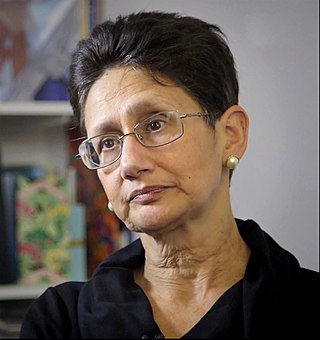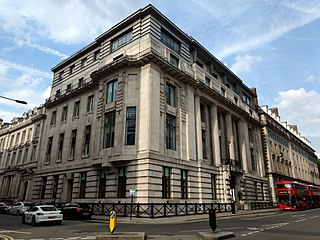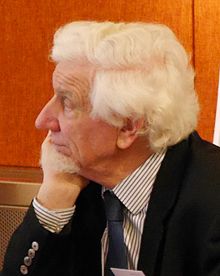Applied ethics is the practical aspect of moral considerations. It is ethics with respect to real-world actions and their moral considerations in private and public life, the professions, health, technology, law, and leadership. For example, bioethics is concerned with identifying the best approach to moral issues in the life sciences, such as euthanasia, the allocation of scarce health resources, or the use of human embryos in research. Environmental ethics is concerned with ecological issues such as the responsibility of government and corporations to clean up pollution. Business ethics includes the duties of whistleblowers to the public and to their employers.
Bioethics is both a field of study and professional practice, interested in ethical issues related to health, including those emerging from advances in biology, medicine, and technologies. It proposes the discussion about moral discernment in society and it is often related to medical policy and practice, but also to broader questions as environment, well-being and public health. Bioethics is concerned with the ethical questions that arise in the relationships among life sciences, biotechnology, medicine, politics, law, theology and philosophy. It includes the study of values relating to primary care, other branches of medicine, ethical education in science, animal, and environmental ethics, and public health.
Medical ethics is an applied branch of ethics which analyzes the practice of clinical medicine and related scientific research. Medical ethics is based on a set of values that professionals can refer to in the case of any confusion or conflict. These values include the respect for autonomy, non-maleficence, beneficence, and justice. Such tenets may allow doctors, care providers, and families to create a treatment plan and work towards the same common goal. It is important to note that these four values are not ranked in order of importance or relevance and that they all encompass values pertaining to medical ethics. However, a conflict may arise leading to the need for hierarchy in an ethical system, such that some moral elements overrule others with the purpose of applying the best moral judgement to a difficult medical situation. Medical ethics is particularly relevant in decisions regarding involuntary treatment and involuntary commitment.

Donna L. Dickenson is an American philosopher who specializes in medical ethics. She is Emeritus Professor of Medical Ethics and Humanities at the University of London, fellow of the Ethox and HeLEX Centres at the University of Oxford, and visiting fellow at the Centre for Ethics in Medicine, University of Bristol.

Daniel Isaac Wikler is an American public health educator, philosopher, and medical ethicist. He is currently the Mary B. Saltonstall Professor of Population Ethics and Professor of Ethics and Population Health in the Department of Global Health and Population of the Harvard T.H. Chan School of Public Health in Boston. He is Director and a core faculty member in the Harvard Program in Ethics and Health (PEH). His current research interests are ethical issues in population and international health, including the allocation of health resources, health research involving human subjects, organ transplant ethics, and ethical dilemmas arising in public health practice, and he teaches several courses each year. He is a fellow of the Hastings Center, an independent bioethics research institution.
Principlism is an applied ethics approach to the examination of moral dilemmas centering the application of certain ethical principles. This approach to ethical decision-making has been prevalently adopted in various professional fields, largely because it sidesteps complex debates in moral philosophy at the theoretical level.
Tom Lamar Beauchamp is an American philosopher specializing in the work of David Hume, moral philosophy, bioethics, and animal ethics. He is Professor Emeritus of Philosophy at Georgetown University, where he was Senior Research Scholar at the Kennedy Institute of Ethics.

The Journal of Medical Ethics is a monthly peer-reviewed academic journal covering the field of bioethics that was established in 1975 and is published by BMJ. According to the Journal Citation Reports, the journal has a 2022 impact factor of 4.2, ranking it second out of 16 journals in the category "Medical Ethics" and sixth out of 57 journals in the category "Ethics".
Clinical ethics support services initially developed in the United States of America, following court cases such as the Karen Ann Quinlan case, which stressed the need for mechanisms to resolve ethical disputes within health care. The Joint Commission on Accreditation of Healthcare Organizations requirement for hospitals, nursing homes, and home care agencies to have a standing mechanism to address ethical issues has also fostered this development.

The Kennedy Institute of Ethics is one of the most prestigious bioethics institutes in the world. Located at Healy Hall, it was established at Georgetown University in 1971 as a bioethics center, think tank and library. Its first director, André Hellegers, said the institution's goal was to "bring expertise to the new and growing ethical problems in medicine today." The Joseph P. Kennedy Jr. Foundation granted $1.35 million to the Institute, contributing to the establishment of its Bioethics Research Library and providing for two Chairs. The Institute was soon in need of more financial support, which it received from Georgetown University and by several public, private and governmental grants. The philosopher Tom Beauchamp and the bioethicist Robert Veatch were among the first scholars to join the Kennedy Institute of Ethics. The institute features a top-ranked graduate program in applied ethics.
Dame Margaret Elizabeth Turner-Warwick was a British medical doctor and thoracic specialist. She was the first woman president of the Royal College of Physicians (1989–1992) and, later, chairman of the Royal Devon and Exeter Health Care NHS Trust (1992–1995).
Islamic bioethics, or Islamic medical ethics, refers to Islamic guidance on ethical or moral issues relating to medical and scientific fields, in particular, those dealing with human life.
The Faculty of Pharmaceutical Medicine (FPM) is a faculty of the three Royal Colleges of Physicians of the United Kingdom. It is a UK-based professional membership organisation with 1,600 members; physicians with a professional interest in the speciality of pharmaceutical medicine, the science of discovering, developing and testing new drugs, their regulation, and monitoring them for safety both during development and when they are prescribed. FPM is a registered charity and ultimately exists to bring about an improvement in health in patients and the general population.
David DeGrazia is an American moral philosopher specializing in bioethics and animal ethics. He is Professor of Philosophy at George Washington University, where he has taught since 1989, and the author or editor of several books on ethics, including Taking Animals Seriously: Mental Life and Moral Status (1996), Human Identity and Bioethics (2005), and Creation Ethics: Reproduction, Genetics, and Quality of Life (2012).
Daniel K. Sokol is a barrister and medical ethicist known for his academic and journalistic writings on the ethics of medicine.

Neena Modi is a British physician and Professor of Neonatal medicine at Imperial College London. She is the current president of the UK Medical Women’s Federation, and past president of the Royal College of Paediatrics and Child Health, serving in this role from April 2015 to April 2018. She is one of only four women to ever hold this position.

Professor Alastair Vincent Campbell MA, BD, Th.D., FRSE is a British theologian and bioethicist. He was the founding editor of the Journal of Medical Ethics and received the Henry K. Beecher award from the Hastings Centre in 1999.

The Diploma in the Philosophy of Medicine (DPMSA) is an academic award in the United Kingdom. It is awarded to students who have completed a one-year study of the philosophy of medicine in a course run by the Faculty of the History and Philosophy of Medicine and Pharmacy, and have passed an examination.

The Edwin Stevens Lecture, also known as the Edwin Stevens Lecture for the Laity or Stevens Lecture, are a series of lectures founded and named for Arthur Edwin Stevens in 1970. Stevens was a successful entrepreneur and member of the library section of the Royal Society of Medicine (RSM), London, where the lecture is held every year. In 1967, a committee to discuss "lectures for the laity" was formed. In 1970, at the request of the then president of the History of Medicine Society, Sir Terence Cawthorne, Stevens donated £2,000 a year for the first three years, as a trial. The lectures became successful and Stevens donated a further £50,000 in 1973 and made the lecture series permanent.
Sarah Catherine Clarke FRCP FESC FACC is a British consultant cardiologist and has served as the president of the Royal College of Physicians (RCP) of London since September 2022.








